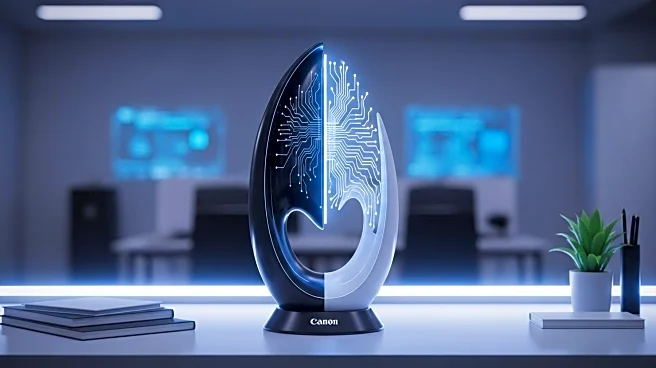What's Happening?
At The Drum Awards Festival 2025, a panel of design experts discussed the impact of artificial intelligence (AI) on the creative process. The consensus among the jurors was that AI is an inevitable part of the future, but its role in creativity is complex. Vicky Bullen, CEO of Coley Porter Bell, described AI as a collaborator that can enhance creative ideation but emphasized that human intuition is still crucial for originality. Brendán Murphy, global creative director at Lippincott, sees AI as a tool for managing brand content but insists it should not replace human connection and authenticity. The discussion highlighted a balance between leveraging AI for efficiency and maintaining the human elements that drive creativity.
Why It's Important?
The integration of AI into creative processes has significant implications for the design industry. While AI can streamline workflows and offer new tools for creativity, there is a risk of losing the human touch that is essential for originality and emotional connection. Designers are concerned that over-reliance on AI could lead to a loss of creative conviction and the erosion of skills necessary for breakthrough ideas. This debate is crucial as it addresses the broader impact of AI on industries that rely heavily on human creativity and innovation. The outcome of this integration will affect how brands differentiate themselves and maintain their identity in a rapidly evolving digital landscape.
What's Next?
As AI continues to develop, designers will need to find ways to integrate these technologies without compromising the core elements of creativity. This may involve redefining the roles of AI and human designers in the creative process, ensuring that AI is used to enhance rather than replace human input. The industry will likely see a push towards training designers to use AI tools effectively while preserving the human skills that are essential for storytelling and brand building. The ongoing dialogue will shape the future of design, influencing how brands communicate and connect with their audiences.
Beyond the Headlines
The discussion around AI in design also touches on ethical considerations, such as the potential for AI to homogenize creative outputs and diminish cultural diversity. Designers must navigate these challenges to ensure that AI serves as a complement to human creativity rather than a substitute. The long-term impact of AI on the design industry will depend on how well these ethical and creative challenges are addressed.








